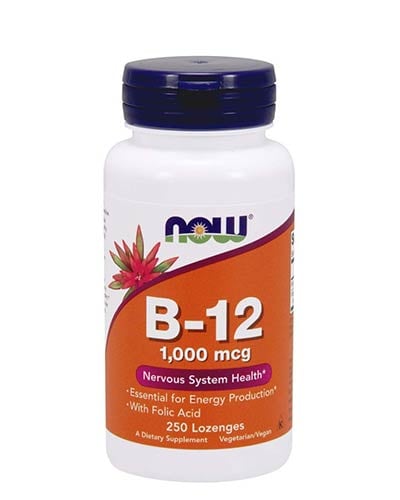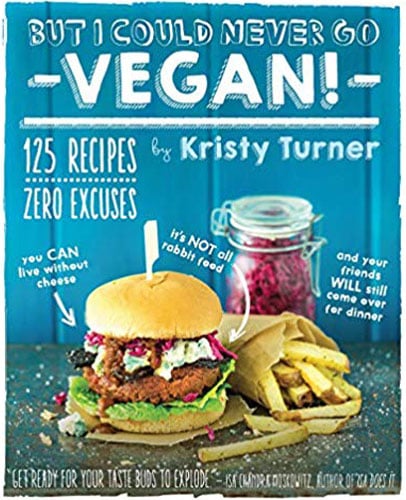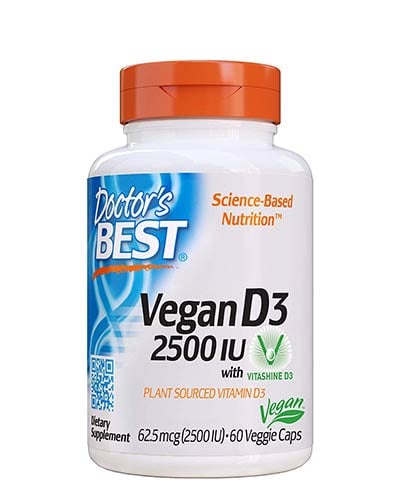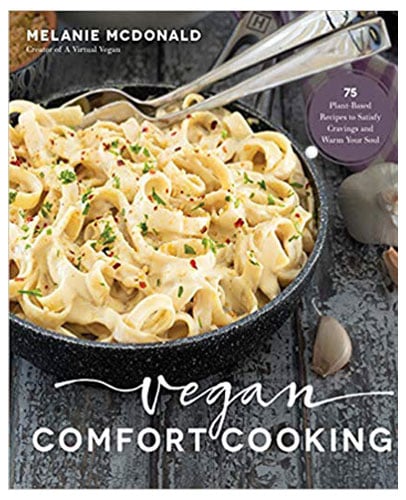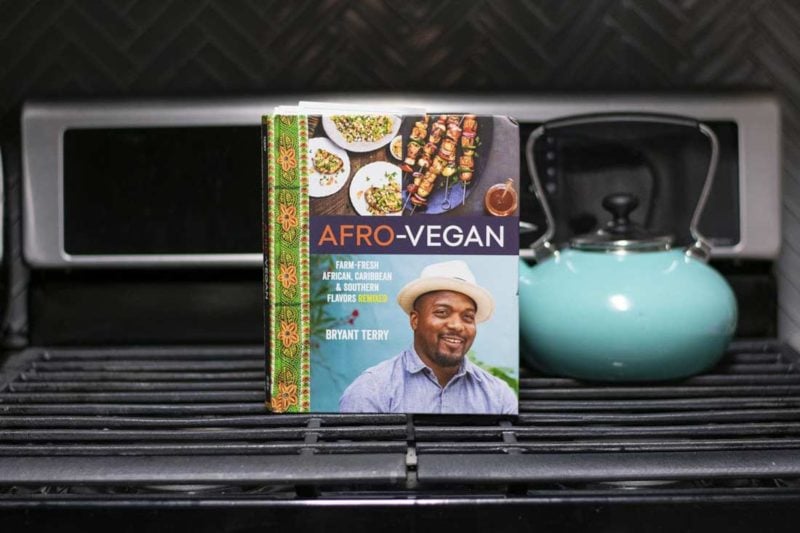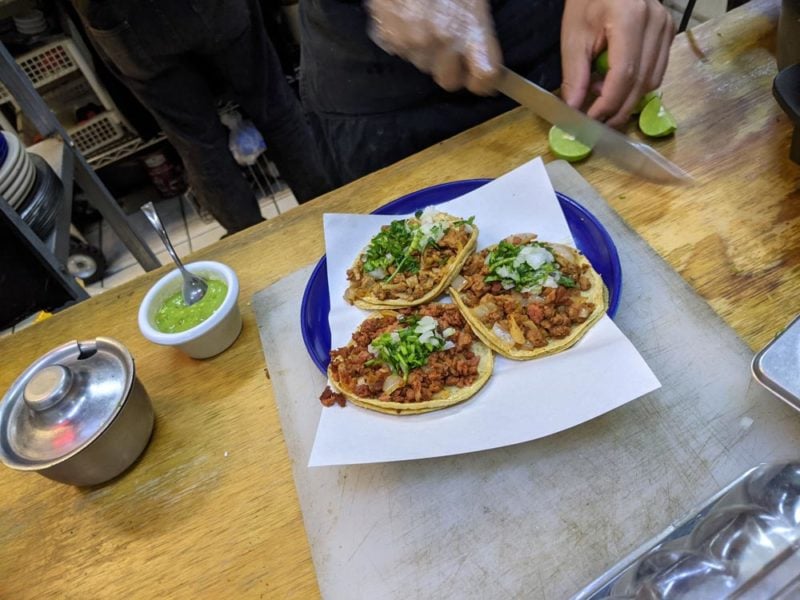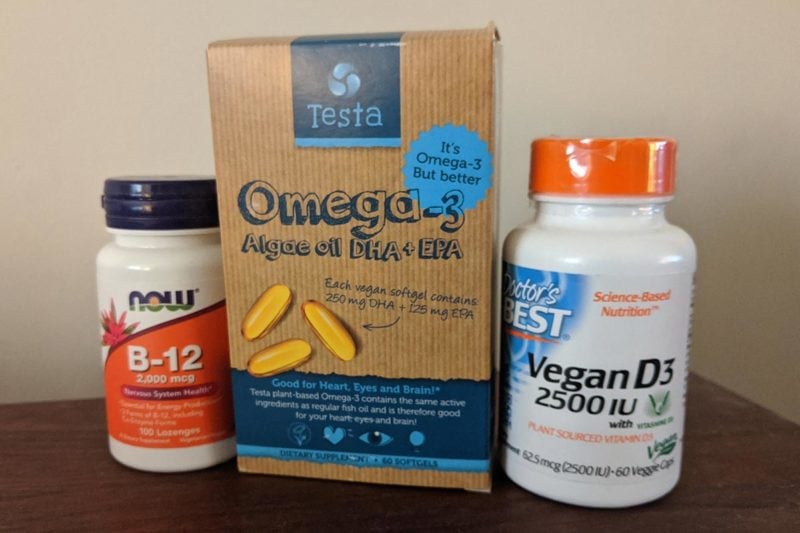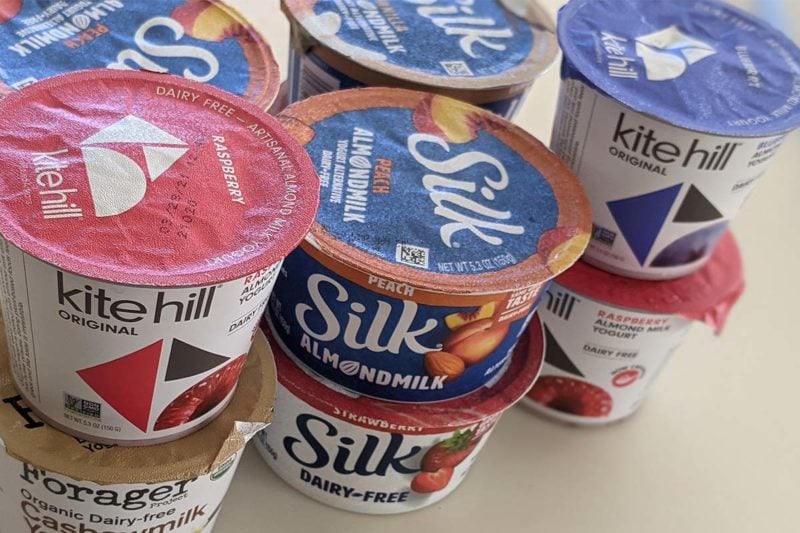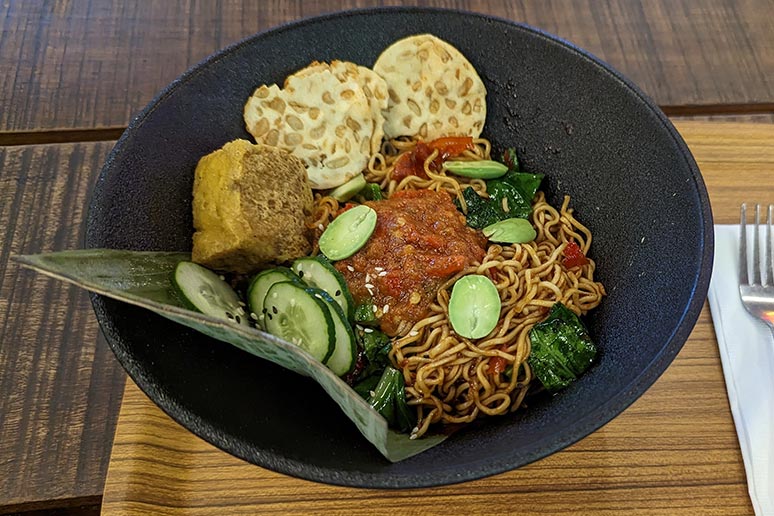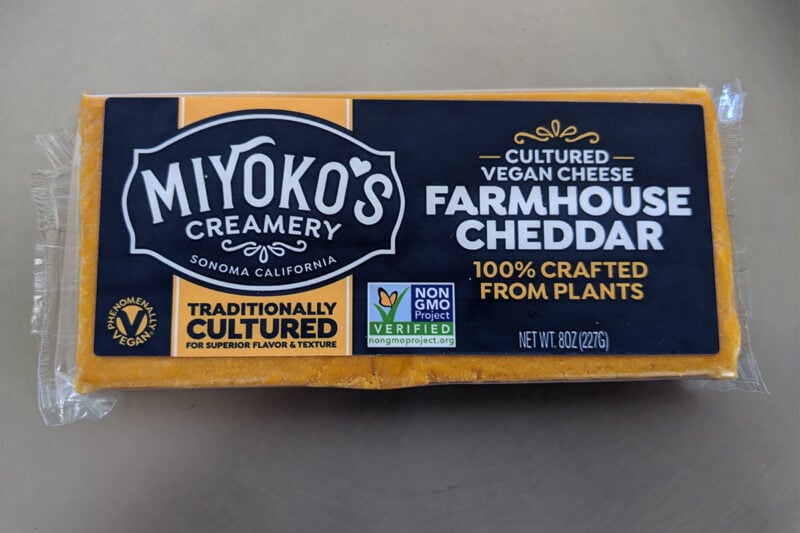Long, cold winters pose some minor challenges to vegans. The abundance of fresh summer produce has dwindled away, leaving you to face the twin necessities of staying warm while finding new foods to eat. But the descent into winter also brings new sources of enjoyment. On a sweltering July afternoon, hot mulled cider and a steaming pot of soup aren’t the least bit appealing. But deep in winter they’ll nourish body and soul like nothing else.
So let’s take a look at how to stay warm and well-fed through the winter.
Vegan Foods for Winter
In temperate climates, fresh local fruit disappears in winter, with the exception of apples which are harvested through the late autumn and can easily keep refrigerated until spring. Also, during early winter, you might have access to persimmons—the very last of all tree fruits to ripen.
For greater variety, you can buy citrus fruits transported in from tropical climates. Bananas in particular are available year-round in most parts of the world, although they are monocultured force-ripened fruit that can’t compare to the varieties eaten locally in the tropics.
Vegetables
Root vegetables are wonderfully nutritious and an unbeatable wintertime food. They include:
- Potatoes
- Carrots
- Turnips
- Rutabagas
- Beets
- Yams and sweet potatoes
- Burdock
Back before refrigerators existed, people kept these vegetables in a “root cellar” for the winter. Root vegetables will keep until spring as long as they’re stored in a dark and chilly place. On a frigid day, no food delivers greater comfort than a steaming bowl of soup made from root vegetables. Discover the most appealing possibilities by reading my vegan soup guide.
Any sort of root vegetable is also immensely satisfying when roasted. So if you’ve never roasted vegetables before, winter is the perfect time to master this skill. My guide to roasting vegetables explains the basics.
Thick leafy greens like kale and chard can stay fresh in your refrigerator for weeks, and they freeze well. I have bought several kilograms of these greens from my farmers’ market in late fall, then cleaned, sliced, and packed them into freezer bags. I vastly prefer locally-grown produce frozen at its peak to fresh produce trucked in from thousands of kilometers away.
Finally, winter squash is one of the best foods for cold months. It’s cheap, delicious, and can last until spring if stored in a cool place and not cut open. Try it roasted, blended into soup, or stir-fried. Kabocha, delicata, and butternut are my favorite varieties.
Beans
Bean-based dishes are likewise perfect for winter. There are dozens of varieties of beans, any of which are excellent for making all sorts of protein-rich soups and stews. My beans guide offers all the key information you’ll need to get cooking.
Fats and Peppers for Added Warmth
Since fat is your body’s most concentrated form of energy, and a little extra body fat is naturally insulating, boosting your fat intake can help you stay warm during winter. Just like squirrels power through winter by digging up the acorns they’ve stashed away, you’ll find that nuts are the perfect winter snack. Walnuts will add some hard-to-get omega 3 fats to your diet. And your body’s increased need for fat during cold months gives you a handy excuse to eat more chocolate—as if you ever needed one.
Don’t neglect the warming properties of ginger and hot pepper. Any dish made with these foods will make your body feel warmer. So a spicy vegan Mexican chili or a Thai curry are phenomenal cold weather meals.
Kitchen Gear for Winter
A few kitchen appliances can help you get through the winter in style. A Instant Pot will enable you to cook dried beans in under an hour, as opposed to the endless amount of time they require on a stovetop. And a slow-cooker is the ultimate way to turn five minutes of preparation into a piping-hot meal that tastes like you’ve slaved away all afternoon. There are several vegan cookbooks devoted exclusively to Instant Pots and to slow-cookers.
One final tip for a super-cheap kitchen appliance that’s ideal for cold weather: an electric kettle. If you’ve never owned one, you have no idea what you’re missing. They’ll heat water far more quickly than a stove-top kettle, and with less energy. They’re obviously great for making coffee or tea, and during the winter you can also use them to gently warm all your water before drinking. The difference between drinking cold water in a chilly house and drinking warm water is profound. If you want to fend off the cold, regularly sipping some warm water is a seemingly small thing that makes a big difference.
See our cookware guide for recommendations concerning these and other kitchen appliances.
Vegan Clothes and Bedding for Winter
Many people stay warm during winter by wearing wool socks and sweaters, and by purchasing down jackets and comforters. Unfortunately, the farming practices underlying both wool and down are shockingly heartless. And nearly all of animals used for these purposes are ultimately slaughtered. Luckily, excellent vegan alternatives now exist. Over the past few decades, scientists have created new synthetic fibers that actually surpass wool and down in warmth.
Material science giant 3M sells Thinsulate brand insulation to a number of jacket and boot companies. Thinsulate doesn’t quite match down’s insulation properties, but it’s far more compact and it’s also impervious to water damage.
Additionally, some people wear thermal underwear made from silk or wool during the winter, although the majority of thermal underwear is now made from polyester or cotton. Silk underwear is smoother and lighter than cotton garments. But just as the invention of nylon rendered silk stockings obsolete in the 1940s, you can now buy silk-like thermal underwear made from polyester blends that provide all the warmth and comfort of silk.
However you dress during winter, layers are your friend. A thick cotton sweater won’t be quite as warm as wool, but when layered over thermals and a long-sleve shirt it’ll still keep you comfortable on cold days. I likewise consider a knit cotton hat as an essential purchase in cold climates. They’re easy to find in a variety of colors and styles.
As for blankets, even the warmest wool blanket or down comforter is no match for an electric blanket.
Embrace the Season
Winters indeed pose challenges for vegans, but they pale beside the pleasures this season brings. You’ll find the cold weather offers special satisfactions if you plan accordingly. So embrace all the season has to offer by investing in the garments, kitchen appliances, and cookbooks that will carry you through the cold weather in style. Then get yourself a big fat book, pour yourself a cup of vegan hot chocolate, and enjoy this time of introspection and renewal.


